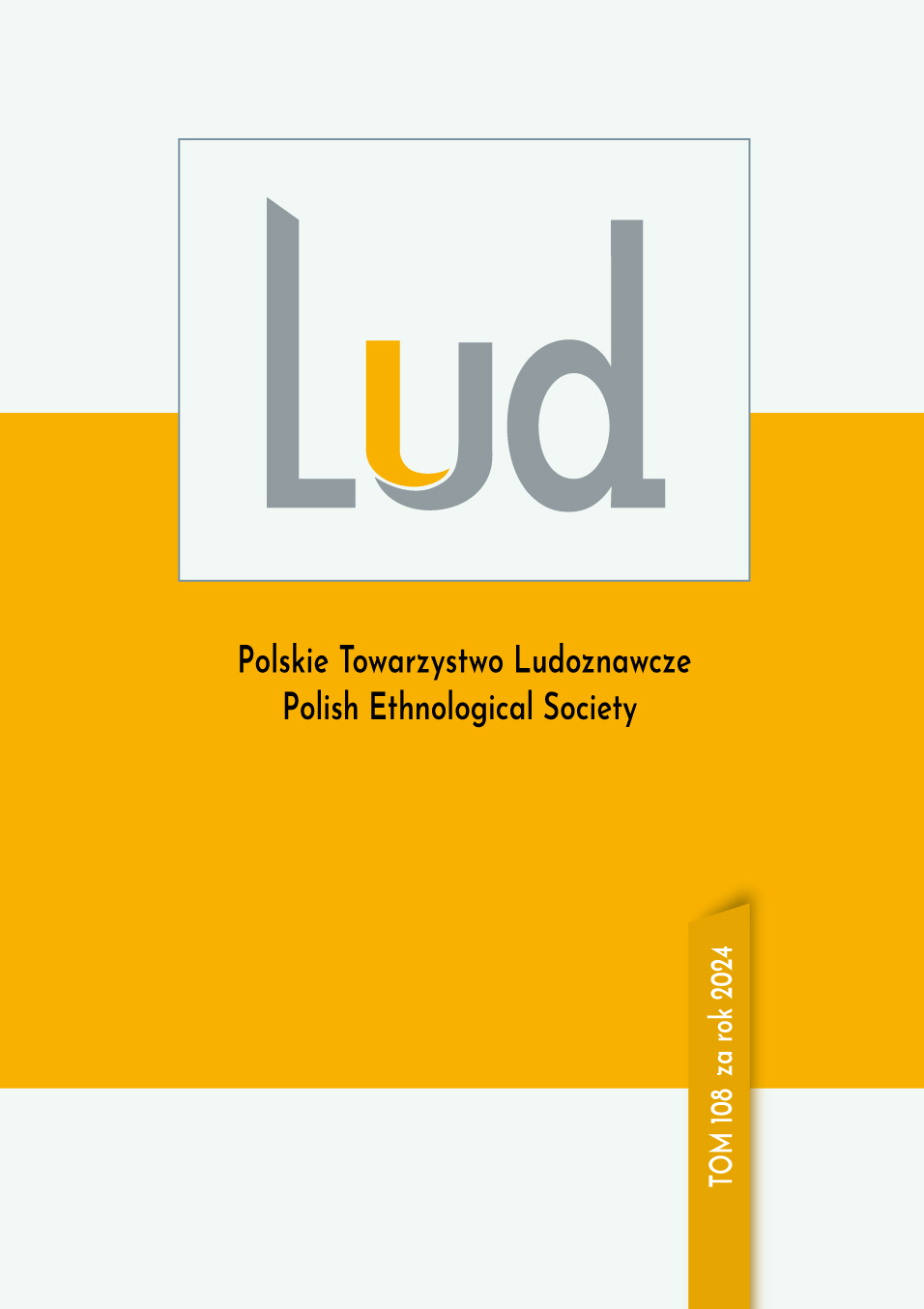Górale and farming – it goes hand in hand — agricultural work as part of cultural heritage in Podhale
DOI:
https://doi.org/10.12775/lud108.2024.03Słowa kluczowe
Podhale, rolnictwo, dziedzictwo, pracaAbstrakt
Contrary to common associations linking Podhale with recreation and tourism, this region still retains its rural character. Rurality, thus, is a category inextricably connected with agriculture and largely shaped by work. That is why progressive changes in agriculture and general de-agrarianisation affect rural areas much more strongly than a simple change in the occupational structure would suggest. The article concerns selected narratives and activities of Podhale farmers, showing agriculture as part of the cultural heritage of the countryside. Referring to the specific agrarian structure, I argue that farmers in this region use the mountain conditions and the presence of the tourist business to undertake activities that go beyond the economic aspects of work. The specific nature of agriculture makes it a space for realising individual ambitions that reach beyond earning a living and touch upon aspects of identity. Even though the agricultural past is common to most inhabitants of Podhale, farmers, consciously referring to it, use techniques available only to them as specific continuators of highland farming methods.
Bibliografia
Buchowski, M. (2006). Dystynkcja poprzez pracę w społeczności lokalnej w Wielkopolsce. In J. Kurczewska (ed.), Oblicza lokalności: różnorodność miejsc i czasu (193-219). Warsaw: Wydawnictwo Instytutu Filozofii i Socjologii PAN.
Buchowski, M. (1996). Klasa i kultura w okresie transformacji: antropologiczne studium przypadku społeczności lokalnej w Wielkopolsce. Poznań: DRAWA.
Górz, B. (2003). Społeczeństwo i gospodarka Podhala w okresie transformacji. Cracow: Wydawnictwo Naukowe Akademii Pedagogicznej.
Jaworska, G. Pieniążek, W. (1995). Konteksty ekonomicznego myślenia. Wolny rynek na wsi z punktu widzenia antropologa. Warsaw: Instytut Ekonomiki Rolnictwa i Gospodarki Żywnościowej.
Kirshenblatt-Gimblett, B. (2005). From Ethnology to Heritage: The Role of Museum.
Kroh, A. (2002). Tatry i Podhale. Wrocław: Wydawnictwo Dolnośląskie.
Krzyworzeka, A. (2014). Rolnicze strategie pracy i przetrwania. Studium z antropologii ekonomicznej. Warsaw: PWN. Doi: https://doi.org/10.31338/uw.9788323514220
Malewska-Szałygin, A. (2008). Wyobrażenia o państwie i władzy we wsiach nowotarskich 1999-2005. Warsaw: Wydawnictwo DiG.
Pine, F. (2000). Kinship, Gender and Work in Socialist and Post-Socialist Rural Poland. In V. Goddard (ed.), Gender, Agency and Change. Anthropological Perspectives (1st ed.) London: Routledge. Doi: https://doi.org/10.4324/9780203449660
Smith, L. (2013). „Heritage Mirror”: The Narcissistic Illusion or multiple reflections?, Voprosy Muzeologii 2 (8), 27-44.
Smith, L. (2006). The slate wiped clean? Heritage, memory and landscape in Castleford, Yorkshire, England. In idem, Uses of Heritage. New York: Routledge.
Tylkowa, D. (ed.) (2000). Podhale: tradycja we współczesnej kulturze wsi. Cracow, Warsaw: Wydawnictwo IEiA PAN.
Zadrożyńska, A. (1983). Homo faber i homo ludens. Etnologiczny szkic o pracy w kulturach tradycyjnej i współczesnej. Warsaw: PWN.
Pobrania
Opublikowane
Jak cytować
Numer
Dział
Licencja
Prawa autorskie (c) 2024 Józef Nowosielski

Utwór dostępny jest na licencji Creative Commons Uznanie autorstwa – Bez utworów zależnych 4.0 Międzynarodowe.
1. Autorzy udzielają wydawcy (Polskiemu Towarzystwu Ludoznawczemu) licencji niewyłącznej na korzystanie z utworu w następujących polach eksploatacji:
- utrwalanie Utworu/przedmiotu prawa pokrewnego;
- reprodukowanie (zwielokrotnienie) Utworu/przedmiotu prawa pokrewnego drukiem i techniką cyfrową (ebook, audiobook);
- wprowadzania do obrotu egzemplarzy zwielokrotnionego Utworu/przedmiotu prawa pokrewnego;
- wprowadzenie Utworu/przedmiotu prawa pokrewnego do pamięci komputera;
- rozpowszechnianie utworu w wersji elektronicznej w formule open access na licencji Creative Commons (CC BY - ND 4.0).
2. Autorzy udzielają wydawcy licencji nieodpłatnie.
3. Korzystanie przez wydawcę z utworu na ww. polach nie jest ograniczone czasowo, ilościowo i terytorialnie.
Statystyki
Liczba wyświetleń i pobrań: 658
Liczba cytowań: 0



